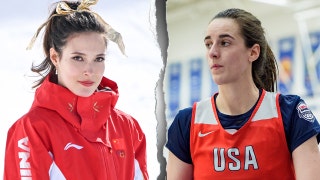The NCAA is asking the U.S. Supreme Court to hear the so-called O'Bannon case that successfully challenged the association's use of names, images and likenesses of college athletes without compensation.
The plaintiffs in the case, which was originally filed by former UCLA basketball star Ed O'Bannon, petitioned the Supreme Court in March to hear the case. The NCAA also filed an opposition Friday to the plaintiff's filing.
In 2014, a U.S. district judge decided NCAA's amateurism rules violated antitrust law. Judge Claudia Wilken ruled schools could — but were not required to — pay football and men's basketball players up to $5,000 per year for use of their names, images and likenesses. The money would go into a trust and be available to the athletes after leaving college. Wilken also ruled schools could increase the value of the athletic scholarship to meet the federal cost of attendance figure for each institution.
The Ninth U.S. Circuit Court of Appeals last year overturned Wilkens' ruling on the NIL payments of $5,000, but left the NCAA's amateurism rules vulnerable to more legal challenges. There are two other antitrust lawsuits against the NCAA working their way through the courts that challenge schools' rights to cap compensation for athletes at the cost of a scholarship. Those suits could be far more damaging to the current system of college athletics and lead to athletes' compensation being determined on the open market.
The NCAA wants the Supreme Court to reaffirm its 1984 ruling in Oklahoma v. Board of Regents that protected amateurism.
"For different reasons, both the NCAA and Ed O'Bannon believe the Ninth U.S. Circuit Court of Appeals used the wrong tests to analyze the NCAA rules," NCAA chief legal officer Donald Remy said in a statement Friday. "The NCAA asked the Supreme Court to hear the case to obtain unquestionable clarity on key issues of law affecting the NCAA and other similar organizations. In short, we are asking the Supreme Court to reaffirm its antitrust holding in the Board of Regents case, endorse the 9th Circuit's affirmation of amateurism, and define the appropriate scope of the First Amendment. We believe the Supreme Court can conduct this review properly and dictate the appropriate tests by accepting the questions we have presented and rejecting those presented by O'Bannon."








































